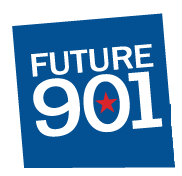Instant Runoff Voting: Why everyone should embrace this change
Most progressives realize that our electoral system needs restructuring, from campaign finance reform to ending voter suppression tactics like photo ID laws and aggressive registration purges. But there’s an equally important national electoral reform movement that gets under-discussed, and Memphis happens to be the current ground zero for it: Instant Runoff Voting (IRV).
Under IRV, voters can rank their 1st, 2nd, and 3rd choice candidates. If one candidate gets a majority of all votes, she wins, like in any election. If not, we eliminate the weakest candidate, and transfer those votes to remaining candidates based on 2nd choice votes. We keep doing this until one candidate has a majority and becomes the winner. This ensures a majority winner without the trouble, expense, and abysmal low turnout of second-round “runoff” elections.
IRV has been used successfully for decades in over 10 U.S. cities, including San Francisco and Minneapolis, and was recently adopted by the entire state of Maine for statewide use. It has been endorsed nationally by Barack Obama and the Rev. Jesse Jackson, and locally by Rep. Steve Cohen, former Memphis mayor Myron Lowery, the Shelby County Democratic Party, Black Lives Matter Memphis, the AFL-CIO Labor Council, the Commercial Appeal, and the Memphis Flyer, among many others.
In 2008, Memphis referendum voters approved IRV use for city elections in a 71% vote. Election officials slow-walked implementation for years, but are now finally ready to use it in the 2019 City Council elections. Before we can even try it once, though, the City Council, motivated by incumbency protection, is trying to stop IRV by placing two IRV repeal referenda on the November 2018 ballot. As our State Senate Majority Leader Mark Norris and new County Mayor Lee Harris both say, you don’t even need to get into the merits of IRV to oppose this move: the people already voted for it, so we should try it once before we think of repeal.
With similar disdain for the referendum voters’ will, the Council is also trying to undo the 2008 referendum setting a two-term limit on City Council members. Before the term limits even have time to take effect, the Council has also placed on the November 2018 ballot a referendum to give themselves an extra third term.
Save IRV Memphis, a bipartisan, racially diverse grassroots group, is urging voters to vote “NO” on all referenda in November. www.saveirvmemphis.com.
IRV avoids the “spoiler” effect—e.g., where too many progressives run in a progressive district, splitting the progressive vote, only to let a far less progressive candidate sneak by and win with, say, 35% of the vote. Memphians saw this recently in the SuperDistrict 9 City Council race. It’s also how Trump went from joke candidate to front-runner during the plurality, winner-take-all GOP presidential primaries.
In single-member Memphis City Council races, we try to address this problem by having a second, runoff election between the top two vote-getters, held 4 weeks later. But no one shows up for this second round: turnout drops from 28% to 5%, and that 5% is disproportionately whiter and wealthier. IRV solves this problem by letting voters be “one and done” in that first, 28% turnout round.
Progressives should love IRV because it eliminates the suppression of minority/low-income/mobility-impaired votes caused by making voters make an unnecessary second trip to the polls. They understand that voters with two jobs, child care issues, or transportation issues can find it hard to come back to the polls a second time, and that such voters are the ones the system always gives short shrift. Fiscal conservatives should love IRV because it saves tax dollars on an unnecessary second election—in Memphis, at least $100,000 per year. Good government types of all stripes should celebrate that IRV increase voter participation across the board; encourages civility in campaigns; and levels the playing field for lesser-known, lesser-funded candidates.
IRV opponents say it’s too confusing for Memphis voters or is difficult to administer. But IRV has been used successfully across the U.S. without voter confusion or election administration problems.
Opponents also complain of so-called “exhausted ballots”—i.e., if a voter’s 1st, 2nd, and 3rd choice all happen to be eliminated in early rounds, that ballot can no longer be counted in later rounds. True, this can happen with a small fraction of IRV ballots (and only when there are 5 or more candidates). But under our current system, voters get only one chance to influence the outcome; with IRV, they get three, so they are still ahead. More important, over 80% of first-round Memphis voters are not able to get to the runoff round—a rate of “exhausted voters” over 6 times worse than the average IRV “exhausted ballot” rate. If we are truly concerned about having the maximum amount of voters being able to have their vote counted in the final round, we should flee the antiquated second-round runoff system and embrace IRV.
If you agree that we should give IRV a chance to work, please tell all your friends to vote “NO” on ALL referenda this November. Then, please consider volunteering or donating at www.saveirvmemphis.com. With your help, we can put Memphis on the vanguard of electoral reform.
Steven Mulroy is a University of Memphis law professor specializing in election law, a former Shelby County Commissioner, and a former voting rights lawyer for the U.S. Justice Department.

